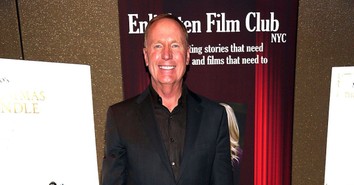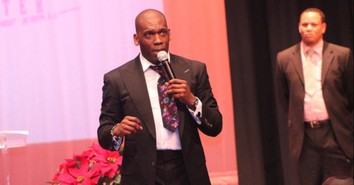Shocking Survey Finds Only 11% of Americans Believe in the Trinity

According to a new survey conducted by the Cultural Research Center at Arizona Christian University, only 11 percent of Americans believe in the Trinity. The survey, which polled 2,100 adults in January as part of its latest installment of its American Worldview Inventory series, revealed that slightly more than 1 in 10 respondents (11 percent) believe in the Trinity, which consists of God the Father, Jesus Christ, and the Holy Spirit as "three distinct but inseparable and equal persons in one infinite Being," and is considered a as a "fundamental tenet of Christianity."
Among self-identified Christians, only 16% believe in the Trinity, as well as 24% among theologically-identified born-again Christians and 62% among Integrated Disciples, The Christian Post reports.
"These results are further evidence of the limited or lack of trust Americans have in the Bible, the limitations we place on the authority and influence of God, and our refusal to cooperate with God by living in harmony with His ways and purposes," said CRC Director of Research George Barna regarding the survey results. "Even the statistics for the groups that are most in-tune with biblical teachings, such as belief in the nature and impact of the Trinity, are shockingly low for a nation in which most people claim to be Christian."
Barna noted that "these findings about America's ignorance or rejection of the Trinity" are "simply another in a long list of examples of people living without the truths and life principles of God shaping their life."
"We know from our national worldview tracking studies that most Americans are uninformed about the many essential biblical teachings, ranging from the Ten Commandments and the Trinity to matters related to repentance, salvation, the chief purpose of life, and divine measures of success," he lamented.
According to Barna, "It could be argued that the primary theologians influencing the spiritual views of America these days are figures" from influential podcasters "such as Tucker Carlson, Joe Rogan, Russell Brand, Jordan Peterson, Megyn Kelly, and Bill Maher" rather than religious figures.
"They mix practical and sometimes unbiblical theology and philosophical points of view into their commentary on life and world events," Barna said of the podcasters. "Meanwhile, many Christian churches are focused on delivering multi-part series that are not effectively developing or bolstering an integrated, biblical worldview that congregants can rely upon to counteract popular, secular takes on reality."
Barna also asked a series of rhetorical questions intended to highlight the reality that American culture lacks the components necessary to guarantee a biblically literate population, implying that no significant cultural figure or church is "devoted to obsessively building a solid theological foundation for the masses."
"Who is dedicated to making sure that people understand the fundamental theological components of a biblical worldview? Where is the distress or worry at the almost universal rejection of many of the core principles of the Bible?" he asked.
"Is the Church of God devoted to know Him and making Him know, or has it been seduced by the distractions and distortions of our culture?" he further questioned.
The report also found that just 40% of respondents believe that God exists and affects people's lives. Meanwhile 53% among self-identified Christians, 60% among theologically-identified born-again Christians, and 100% among Integrated Disciples affirm that same statement.
Although 59% believe in the existence of Jesus Christ, just 29% believe in the Holy Spirit.
Photo Credit: ©GettyImages/MirasWonderland

Originally published March 31, 2025.





